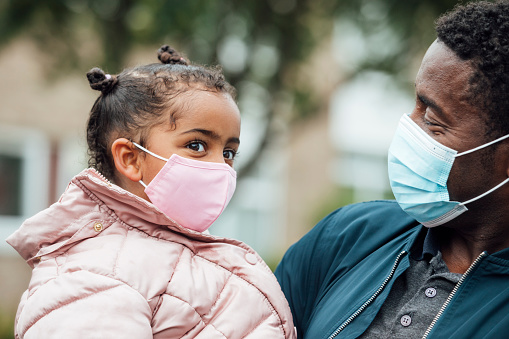An Overview of the Different Types of Social Health ; Definitions, Examples, and Tips; Humans are sociable beings. Having healthy relationships and connections is essential for our well-being. As long as you’re getting enough sleep and exercising, you could be losing out on an essential aspect of your overall well-being.
People have become increasingly conscious of their health due to increased knowledge of mental health and an aging population. It has been demonstrated that having a positive social environment has physical and psychological benefits. It can be defined as our ability to engage with others and form meaningful relationships with them over some time.
Adaptability in social contexts is also a factor:
Our social ties influence our emotional, bodily, and mortality risks. There has been a long-standing connection between social ties and health consequences by sociologists across time. It has been discovered via extensive research that the quality and amount of our social interactions substantially impact our health, both in the short and long term.

Social health and well-being play a critical role as part of our overall health. According to the Australian Government, “defend mental health.” We come into contact with other people daily. Our emotional and physical health is directly related to the quality and quantity of our interpersonal relationships. Being socially healthy allows you to have meaningful relationships with others.
Friendships, personal partnerships, spiritual, family, and professional (job) relationships are examples of these interactions. Research has demonstrated that people who participate in low levels of social activity die earlier than those who participate in higher levels of involvement.
Can measure social health and well-being in several ways:
When it comes to assessing our Social Health, taking time to reflect on ourselves and our relationships is a fantastic way. We can begin by looking at the indicators and determining if they relate to your situation. Until now, Western countries had no idea how vital it was to gauge the happiness of their citizens (GDP).
For a country’s economic success to be meaningful, its population must be happy. Can assess the well-being of a nation by looking at various measures. The subjective well-being of citizens is being asked in national surveys by several jurisdictions. Researchers have drawn a comparison between loneliness and smoking 15 cigarettes a day.
Loneliness increases a person’s risk of early death by half compared to having strong social ties. Inflammation in the body can develop into heart disease and other chronic illnesses resulting from loneliness. An individual’s health can suffer if they lack social or emotional support.
Social Relationships Have a Dark Side:
Their relationships can be healthy, but not all of them are. They are the foundation of most people’s Social Health, but they may also be incredibly stressful.

People evolve:
When you were in high school, you may have had many things in common with a good friend, but ten years later, you’ve both moved on and no longer enjoy each other’s company. Friendships might suffer due to a change in a person’s personality. A family member is often the only one who can tell when a friend is no longer a beneficial influence.
Harmful influences:
Having friends is vital, but only if they are good friends. Positive friendship will inspire you to do what you want to do in Social Health and bring out the best in you. Surrounding oneself with individuals who have a positive impact on your life is critical to your overall well-being.
Toxic relationships are the most concerning:
The other party may take advantage of the relationship by doing Social Health for them without paying back any favors done for them. One spouse can exert power over the other by their bad temper in long-term partnerships. Their spouse loses patience attempting to speak with them because of their violent outbursts and says they make them feel like they’re ‘stepping on eggshells,’ never knowing when the next one will come.
Suspicion and jealousy are other kinds of control that can be used (typically in long-term relationships). As the connection progresses, the ‘victim’ finds less freedom and greater responsibility to explain their whereabouts. In some instances, bullies will make fun of a friend or partner in front of others, but bullying isn’t funny at all when their actions cause harm to the other person.
It might harm a victim’s’ physical and mental health due to an unhealthy relationship. Do you want to know how you can improve your social well-being? Can develop good social skills, but it takes time and effort on the part of the individual. Anyone can, however, still work on their social wellness now. It is possible to live a socially healthy life at any point in one’s life cycle.

Take care of yourself first:
Before you can enhance your social Health, you must first take care of yourself. Consume less alcohol and avoid detrimental coping strategies. By obtaining enough sleep, eating a diversified diet rich in fruits and vegetables, engaging in regular physical activity, and abstaining from harmful coping mechanisms, you can improve your overall health.
Another method, such as binge drinking, can reduce your risk of developing alcoholism and other mental illnesses. Recognize the sources of your anxiety and take steps to avoid allowing it to control your life. Try to get to know your new acquaintances by talking about things they enjoy, such as their favorite TV shows or the weather. Observe their reactions, and if you have something in common, continue the conversation by mentioning it.
When we don’t keep in touch, we lose friendships. Make it a point to communicate with at least one or two of your friends in Social Health. Do whatever it takes to show them how much you care and value their friendship. The two of you can plan a fun outing or meet up for a cup of coffee. You and your friends will be spending less time traveling since you, and your friends will be getting together in person regularly will save you a lot of money on travel expenses.

Taking your dog to the park simultaneously each day, or joining a gym, will ensure that you see the same individuals regularly. Start a conversation with anyone who comes up to you and says hi or inquires about your day. These kinds of connections can have a significant impact on your social well-being.
Make every effort to show up when and where you say you will. It’s normal to feel apprehensive about going out on occasion. Even if it’s the easy option, your friend will lose respect if you constantly cancel plans. Making an excuse to avoid going will undoubtedly make you feel bad about yourself. Keep your word until you’re sick of Social Health.



